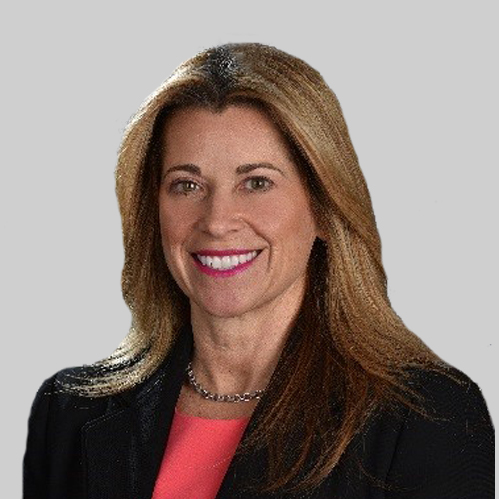Spotlight, our regular Q&A with clients and colleagues, highlights leading viewpoints on trending topics in the world of human resources.

Corey Green
Director and Global Operations Leader, Global Risk Consulting
Commercial Risk Solutions

Patty Errico
Head of Global Public Affairs, Aon Corporation
How Prepared Is Your Business to Address and Communicate Climate and Sustainability Efforts?
Environmental, social and governance (ESG) reporting standards are at the forefront for companies across industries yet again. Most recently, BlackRock issued a statement putting more companies “on watch” for climate risks, encouraging them to disclose their net zero business plans and board strategies. Even further, the U.S. Securities and Exchange Commission (SEC) just announced the creation of a task force to investigate alleged corporate ESG violations by public companies.
To examine what this means in more detail, we recently interviewed two colleagues – Patty Errico, Head of Global Public Affairs, and Corey Green, Global Operations Leader, Global Risk Consulting. In our conversation, we discussed how firms should be thinking about their environmental policies and subsequent reporting, in light of BlackRock’s recent guidance and similar pressures from the SEC and other stakeholders.
How do you expect companies to react to new disclosure expectations? Will they vary per industry, company size and region?
Considering the growing pressure from investors and governments to disclose climate approaches and strategies, we are starting to see companies of all sizes across industries and regions picking up the pace to take action. That said, there are still some pockets that are outpacing the rest. Multinationals and conglomerates seem to be acting faster than most national and middle-market firms. Further, industries pivoting away from certain operations seem to be more prepared for the transition than others, likely in-part due to the pressure from institutional investors like BlackRock. As we see increasing numbers of investors stepping in to support these disclosures and more governments mandating them, we expect there will be a wave of companies focused on quickly adding language to their earnings reports to show that they are adopting frameworks, such as the Task Force on Climate-related Financial Disclosures (TCFD). It’s important to note that when this type of action is commenced, investors and other stakeholders will closely monitor the adoption and hold companies accountable to their word. We anticipate that these disclosures will become the norm in annual reporting for the immediate future. – Corey Green
No company will be excluded in their obligation to disclose how they identify and manage ESG material risks, like climate and human capital management. Every organization will be at various stages along this journey – some more advanced and others just starting. A company’s movement forward on the subject will vary depending on where they reside in the world and how progressive that country’s regulatory mandates are. Large multinationals have an advantage, as they already have been managing ESG-related risks given their global business exposure, stakeholder expectations and ability to fund dedicated departments devoted to the management process. Small to mid-sized caps are only now beginning to get questioned on topics related to ESG by investors and shareholders. They, too, will soon be forced to start disclosing ESG materiality risks, such as climate, with anticipated new regulatory mandates. – Patty Errico
How are businesses informing relevant stakeholders of their climate risk mitigation plans, and how are they reflecting these efforts in their disclosures?
I would say it varies depending on where a company may be on its ESG and sustainability journey. Most large caps have been engaging and utilizing the Global Reporting Initiative (GRI) and Sustainability Accounting Standards Board (SASB) to help identify risks and develop mitigation strategies. They also often use social impact and corporate responsibility reports, as well as TCFD for disclosure. Again, understanding your stakeholders’ expectations and regulatory requirements will drive how they narrate their efforts and plans. – Patty Errico
Most of the frameworks we are seeing include recommendations for disclosing risk mitigation strategies, but the way firms develop and reflect those strategies is often still open to interpretation, creating a challenge for businesses. It requires a holistic approach and one that is much broader than simply considering an increasing number of catastrophes. In addition to the physical risks – which may be the easiest to understand given the tools the insurance and risk management industry already have – climate risk must also consider transition risks, coupled with the opportunities that climate change presents to their business. Further, firms need to ensure they are looking at the process through the right lens. Models that identify the right amount of risk to transfer for the next year won’t necessarily tell business leaders or investors if a significant amount of their portfolio is going to be worthless in 50 years. Beyond that, while business leaders can manage and mitigate climate risks, it won’t always be cost effective to do so. This is where the discussion must become a more strategic one around where organizations should invest, divest and pivot parts of their business. – Corey Green
Companies may say – “I’m not in oil and gas, so this doesn’t impact me.” What advice would you give firms (outside of the energy sector) to help them stay ahead of the curve when it comes to addressing sustainability and environmental factors for the future?
Unfortunately, companies with this mindset may already be falling behind their peers, but it is not too late. Climate change is no longer something that the energy sector will deal with on our behalf, as it is affecting businesses of all industries and regions. Even in the places where we are not seeing government intervention mandate action, we know that a sustainable business will have a plan for long-term resilience. Consider the ways your company is contributing to climate change, both directly and indirectly, and then think about the parts of the balance sheet that may be impacted by climate change. Finding a disclosure framework that works for your company within your industry and region will be key to communicating these concerns and the ways you plan to manage them. – Corey Green
Climate change is considered one of the most important global, longtail risks that this generation has faced. Therefore, addressing sustainability and resiliency is a “must have” for every company. Multiple company stakeholders are demanding to see a transitional path forward to a more sustainable future. If a business has not yet been asked by an investor, shareholder, employee or customer how they plan to lower their carbon footprint and invest in a more sustainable future, it is coming. Equally as important is a company’s narrative. It is no longer acceptable to provide high-level thoughts on what climate change means to a company – stakeholders want to see action. – Patty Errico
The topic of climate change is still relatively new when thinking about it from a management perspective. Don’t be afraid to ask for help from an expert. To learn more about growing boardroom initiatives, specifically ESG-related issues and how to address them at your firm, please visit rewards.aon.com/esg. To learn how Aon is addressing climate risk, read our Aon 2020 Impact Report here.
Related Articles